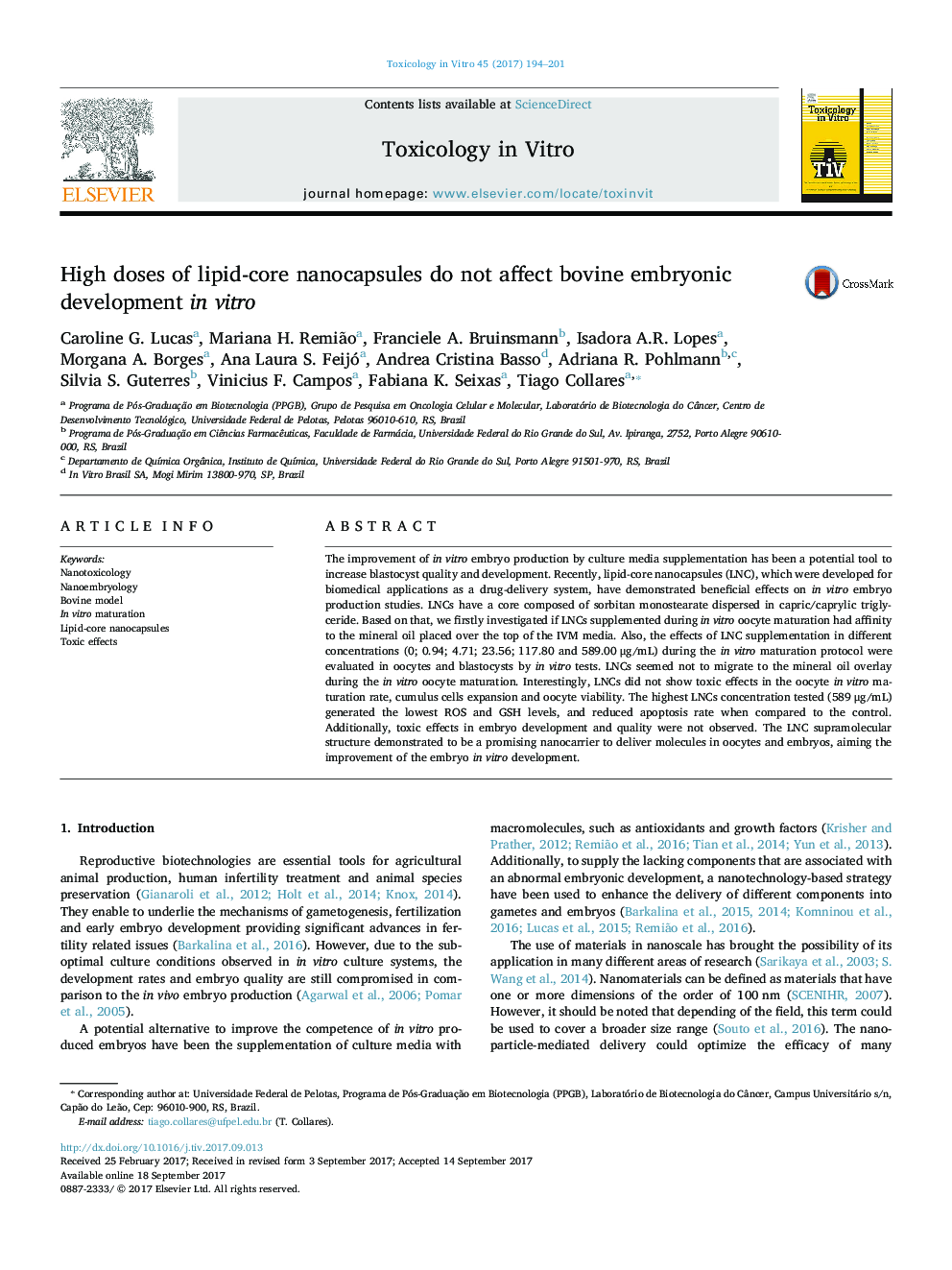| Article ID | Journal | Published Year | Pages | File Type |
|---|---|---|---|---|
| 5562612 | Toxicology in Vitro | 2017 | 8 Pages |
â¢LNCs did not show toxic effects in the oocyte and in the cumulus cells expansion.â¢The highest LNCs concentration generated the lowest ROS and GSH levels.â¢The highest LNCs concentration reduced apoptosis rate.â¢It was not observed LNCs toxic effects in embryo development and quality.
The improvement of in vitro embryo production by culture media supplementation has been a potential tool to increase blastocyst quality and development. Recently, lipid-core nanocapsules (LNC), which were developed for biomedical applications as a drug-delivery system, have demonstrated beneficial effects on in vitro embryo production studies. LNCs have a core composed of sorbitan monostearate dispersed in capric/caprylic triglyceride. Based on that, we firstly investigated if LNCs supplemented during in vitro oocyte maturation had affinity to the mineral oil placed over the top of the IVM media. Also, the effects of LNC supplementation in different concentrations (0; 0.94; 4.71; 23.56; 117.80 and 589.00 μg/mL) during the in vitro maturation protocol were evaluated in oocytes and blastocysts by in vitro tests. LNCs seemed not to migrate to the mineral oil overlay during the in vitro oocyte maturation. Interestingly, LNCs did not show toxic effects in the oocyte in vitro maturation rate, cumulus cells expansion and oocyte viability. The highest LNCs concentration tested (589 μg/mL) generated the lowest ROS and GSH levels, and reduced apoptosis rate when compared to the control. Additionally, toxic effects in embryo development and quality were not observed. The LNC supramolecular structure demonstrated to be a promising nanocarrier to deliver molecules in oocytes and embryos, aiming the improvement of the embryo in vitro development.
